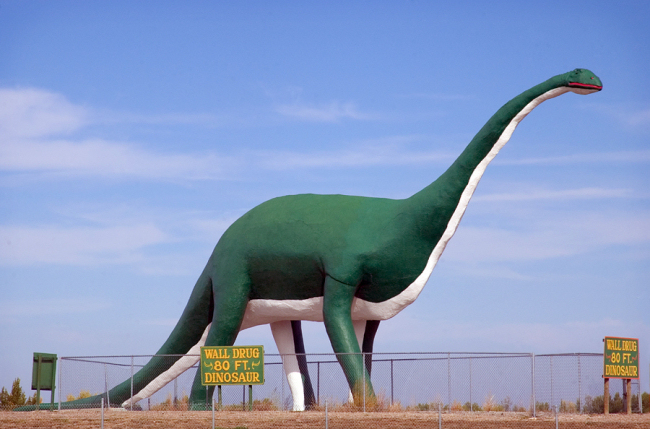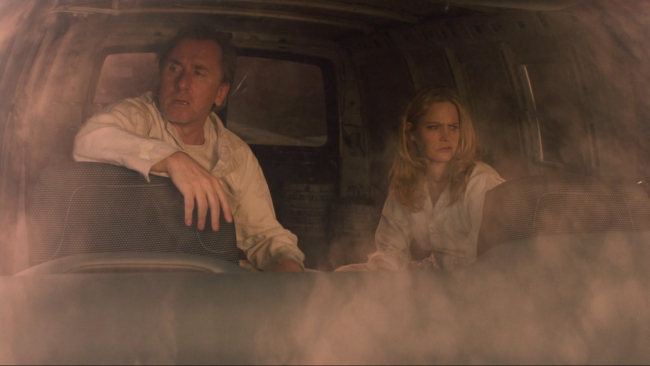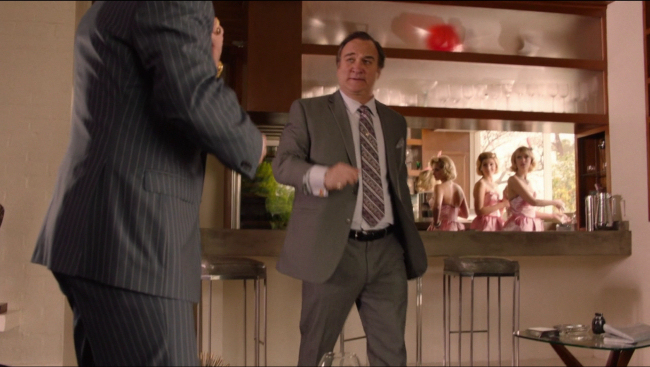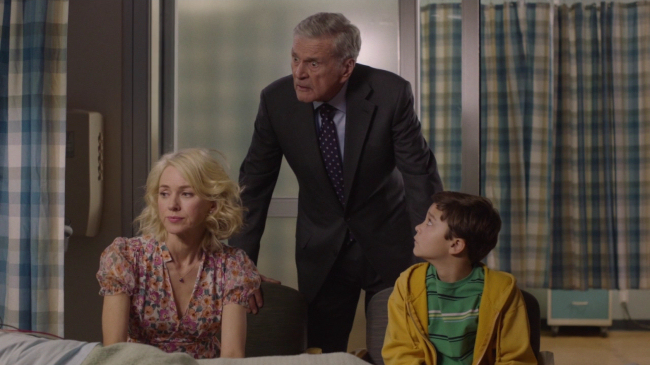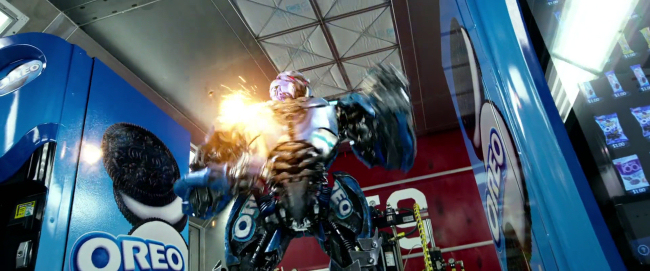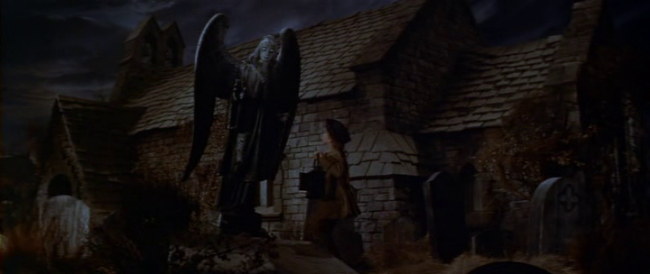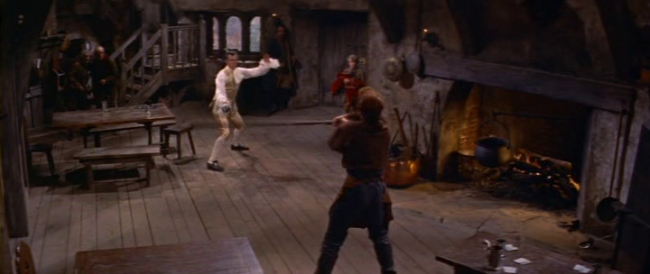
It's hard to see precisely where the battle lines are drawn in the conflict between the head and the heart in Mikio Naruse's 1956 film Sudden Rain (驟雨). Setsuko Hara and Shuji Sano star as a young married couple whose unexamined issues are exacerbated by a sudden series of financial woes, portrayed with Naruse's characteristic delicate, inexorable cruelty. This beautiful picture addresses the emerging influence of feminist social change, ably touches on fundamental human anxieties, and has the wisdom to avoid tidy resolution.

Everything seems fine as the film begins--Fumiko (Hara) and Ryotaro (Sano) have a small, obviously inexpensive home and have typical arguments in the morning about whether they should go out more and about Fumiko cutting recipes out of the newspaper they can't afford for her to make. Kyoko Kagawa plays Fumiko's sister, Ayako, and she pays the couple a visit. She's distraught over her husband's behaviour and she needs Fumiko to confide in.

Fumiko is amused by the complaints that seem like high crimes to Ayako. Her husband yawned at a dinner with guests, he flirted with a waitress right in front of her--Fumiko explains that this is simply what men are like and that being married means becoming acquainted with the faults of one's spouse. When Ryotaro comes home, though, helpfully trying to explain the situation that may have caused Ayako's husband to stay out all night, Fumiko gradually becomes angry herself at her husband's dismissive attitude regarding the faults of another man.

There is a literal sudden rain shortly after but the film's title seems more to refer to three problems that strain Fumiko and Ryotaro's already strained finances--a thief picks Fumiko's pocket at the market, stealing her wallet; Ryotaro's boss announces the company he works for is going under; and a stray dog the couple had been feeding has been stealing and destroying property throughout the neighbourhood. People have begun to demand restitution from Fumiko and Ryotaro.

In a more predictable film, the dog would eventually bring Fumiko her lost wallet or something but Naruse never gives his characters that kind of easy out. The dog is an especially effective part of the film. Even as their problems mount, the couple still can't resist feeding the dog and its hard not to see his innocent but destructive hunger as reflecting the same impulse that keeps the couple together despite their problems.

Fumiko calls Ryotaro old fashioned and feudal, not just because he won't let her work to bring in extra money but also because he presumes that he can go back to his home village at any time and earn a living as a farmer. He threatens to do that several times, each time saying how Fumiko would need to stay in the city because country life wouldn't suit her, a slightly cowardly way of floating the idea of separation. Two opportunities present themselves for Fumiko to get work--first as an errand woman for a newspaper, then as a waitress in a restaurant Ryotaro's co-workers propose opening. The argument between the couple over the issue is particularly insightful for the ways arguments tend to go over such ideological issues--Ryotaro says he doesn't want to be supported by a woman and seems to see any kind of work as degrading for her while Fumiko seems insulted by the very idea that one of them is supporting the other by bringing in money, seeing it instead as a matter of maintaining their existence. The disagreement between the two is exacerbated by each being offended by the other's conceptual presumptions.

But no ideas either one has seems to influence their behaviour, illustrated neatly by a really funny final scene which at the same time does nothing to dispel any of the sources of anxiety.

